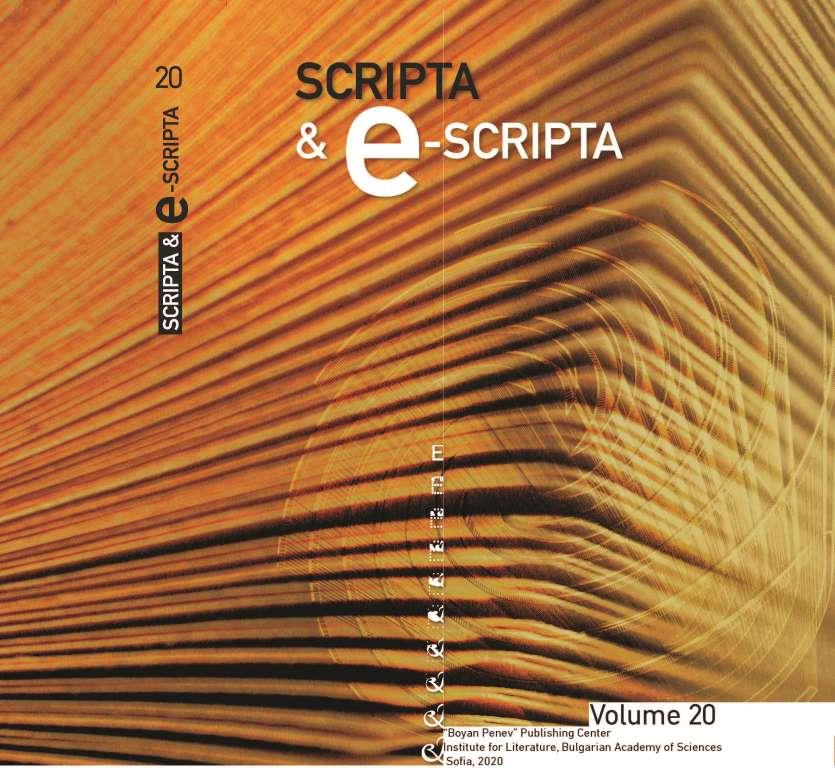Тырновская литературная школа и ее отражение в книжности Сербского Деспотата
The Tărnovo Literary School and its Echo in the Literature of the Serbian Despotate
Author(s): Tatjana Subotin-GolubovićSubject(s): Language studies, Language and Literature Studies, Studies of Literature, Philology, Theory of Literature
Published by: Институт за литература - БАН
Keywords: Tărnovo; Euthymius; hesychasm; Stefan Lazarević; Despotate; Constantine of Kostenets / Konstantin Kostenechki; Gregory Tsamblak; cults of saints
Summary/Abstract: The arrival of Gregory the Sinaite to Mount Athos (c. 1326) and his relocation to the borderland between Bulgaria and the Byzantine Empire, where he founded a monastery in Paroria, marked the beginning of a new chapter in the evolution of spiritual life. Gregory’s hesychast ideas attracted a substantial number of disciples from various nationalities, some of whom went on to become prominent representatives of spiritual life in their respective milieus (Patriarch Kallistos of Constantinople, Patriarch Euthymius of Tărnovo). These ideas rapidly spread among South Slavs. The writings of Patriarch Euthymius, the founder of the Tărnovo Literary School, soon became well known in the Serbian milieu and were often copied. After the fall of Tărnovo (1393) many followers of Euthymius’s literary ideas relocated to Serbian lands. Following the Parorian traditions of Gregory the Sinaite, in Serbian lands they established a series of smaller monastic communities, where they pursued translation and intellectual work; these communities are usually referred to as pustinja (desert, hermitage) precisely to emphasize their wish to avoid contacts with the wider community, both monastic and secular. Among them two names are particularly noteworthy: Constantine of Kostenets / Konstantin Kostenechki and Gregory Tsamblak. Both had enviable reputations as men of letters even before they came to the Despotate. As a layman, Constantine was close to Despot Stefan Lazarević and spent time at his court; he wrote the Explanatory Treatise on the Letters and the Vita of Despot Stefan Lazarević. Upon his arrival in Serbia Gregory became the hegoumenos (abbot) of the Dečani Monastery and penned the Service and Vita of the monastery’s founder Stefan of Dečani, as well as the Account of the Translation of the Relics of St Paraskeva from Tărnovo to Vidin and Serbia. By the end of the 14th century, a new literary genre emerged in Serbia – the paraklesis, which was based precisely on the Tărnovo literary models. Forced to leave Tărnovo and Bulgaria, the refugees who had arrived in Serbia brought the traditions of the Tărnovo Literary School and thereby had a significant impact on the development and spirit of Serbian literature in the first half of the 15th century.
Journal: Scripta & e-Scripta
- Issue Year: 2020
- Issue No: 20
- Page Range: 161-178
- Page Count: 18
- Language: Russian
- Content File-PDF

